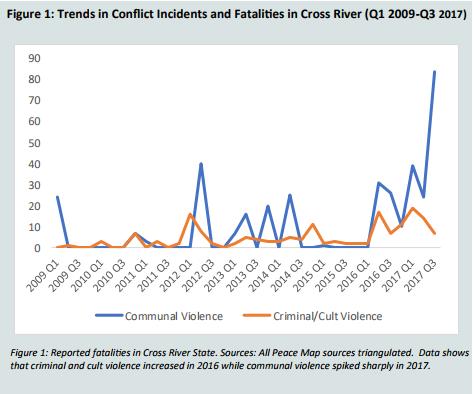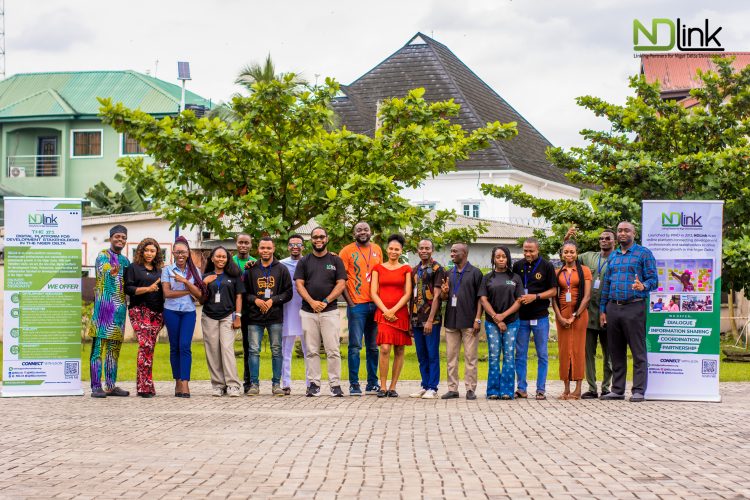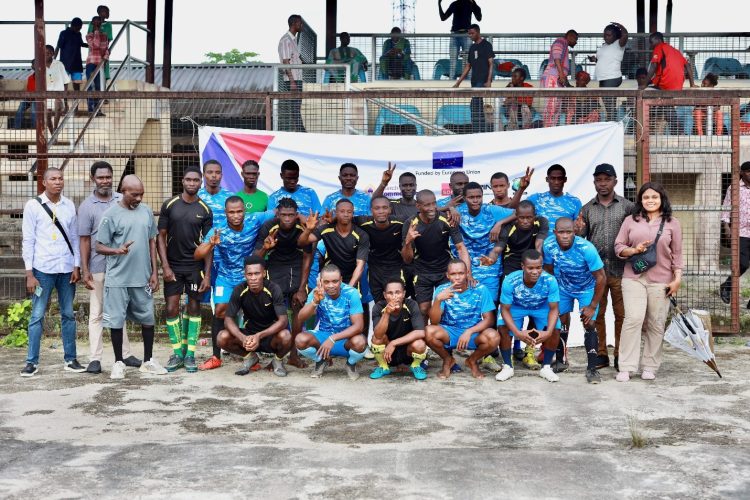Niger Delta Conflict Tracker — 2nd Quarter 2017
September 5, 2017
Conflict Briefing: Rise in Communal Conflict and Gang Violence in Cross River State
September 7, 2017
The Nigerian National Assembly recently passed the independent candidature bill in the ongoing constitutional amendment. This is coming on the heels of an avalanche of reports on electoral reforms recommending the introduction of independent candidacy into Nigeria’s electoral system. Without a doubt, there is a broad national consensus on the need for Nigeria to join the comity of democratic nations by mainstreaming independent candidacy in the electoral process.
The electoral system as presently constituted does not create a level playing field for every citizen. The constitution under Sections 65(2)(b), 106(d); 131(C), and 177 (C) read alongside section 221 clearly stipulates that candidates must be sponsored by political parties and only parties can canvass for votes. This is probably the basis of the appearance of party logos on ballot papers as against names or photos of candidates.
This position has been upheld by the courts in a number of cases. The most recent is the case of Faleke Vs INEC, where the court inter alia held that in tandem with Section 221 of the Constitution, “it is the party that wins the election.” There so gainsaying that the 1999 constitution is a compendium of contradictions. The same ground norm that guarantees citizens freedom of association and expression makes membership of political party criteria for seeking political office. Unfortunately, the constitution also restricts and limits voter choices to candidates presented by parties and political godfathers even where the candidates are unqualified, morally bankrupt, and incompetent.
Independent candidature is not alien to Nigeria. In the First Republic (1960-1966), independent candidature was an intrinsic feature of Nigeria’s electoral process. Notably, Dr. Alvan Ikoku was overwhelmingly defeated by his son Samuel Goomsu Ikoku who stood as an independent candidate in the Southeastern House of Assembly in 1961.
Yakubu: Edo/Ondo results won’t be declared if Politicians disrupt process
Nigerians have been speaking with one voice on this issue. The 2005 National Political Conference and the 2014 National Conference advocated for independent candidacy. The two most prominent executive committees on electoral reform (Justice Uwais committee, 2007 and Senator Nnamani Committee, 2016) also recommended independent candidacy. Independent candidacy was an item passed in the 7th Assembly by the National Assembly and state assemblies in the botched 4th Alteration to the constitution. During the House of Representatives People’s Public Session, 292 federal constituencies voted in support of independent candidacy signaling the acceptance of the amendment by the Nigerian people.
The political scene is fast-changing and independent candidacy is gaining root in the electoral process. In the 2016 election in the Benin Republic, independent candidates dominated the political space with political parties lining behind the independent candidates. In the recent Kenyan elections, independent candidates emerged as governors and members of parliament trumping the powerful Jubilee and National Super Alliance coalition. In a remarkable feat, 23-year-old John Paul Mwirigi ran as an independent candidate and defeated the ruling party’s candidate, Rufus Miriti. Mwirigi is Kenya’s youngest parliamentarian representing Igembe South in the National parliament.
As an instrument of social re-engineering, law responds to emerging trends, needs, and norms dominant in a society. The National Assembly acted appropriately by passing the independent candidature bill to safeguard the public interest.
The recent amendment on independent candidature
The independent candidacy bill is Bill No 15 in the constitution amendment bills recently passed by the National Assembly. 82 Senators voted YES to the amendment while 5 voted No and 3 abstained. In the House, 275 votes in support, 14 voted No and only 1 member abstained. The Independent candidacy bill as passed by the National Assembly seeks to amend six sections of the constitution:
Section 7 was amended to provide for independent candidature in local government elections. It also prescribes conditions for operationalizing independent candidature at the local government level by introducing a constituency-based nomination process. In the case of the Chairman, the signatures of 50 registered voters from each ward of the electoral wards in the respective local government area will be required to validate an independent candidate. Councilors will require the signatures of 20 registered voters from each of the polling units in the respective electoral wards. By virtue of the amendment to Section 7, the qualifications for the local government election are the same as the qualifications for State Assembly.
Section 65 was also amended to provide for independent candidature in the National Assembly elections. For election into the Senate or House of Representatives, independent candidates shall be nominated by at least 10 registered voters, each of whose signatures on the nomination form shall be verified and authenticated as provided by law, from at least two-thirds of the electoral wards in the relevant electoral constituency and subject to a deposit payment as may be prescribed by an Act of the National Assembly which shall also prescribe the conditions for the refund of such deposit.
Section 106 amended to introduce independent candidature in the House of Assembly elections. The qualifications for the house of assembly elections are the same as prescribed for local government election
Section 131 amended to also provide independent candidature for Presidential elections;
Section 177 was amended to provide for independent candidature in governorship elections;
Section 228 amended to expand the legislative competence of the National Assembly to determine the criteria for access to the ballot. The amendment confers the National Assembly with the powers to formulate procedures, guidelines and qualifications for access to the ballot by the political parties and independent candidates.
Why the clamor for independent candidature?
Weak parties and undemocratic candidate selection process. Most political parties, if not all, grapple with a lack of internal democracy. This is evident in the way candidate selection processes are managed in political parties. Party primaries are replete with irregularities, controversies, and violence flowing largely from the imposition of candidates by moneybags/godfathers or non-compliance with laid down rules for the conduct of party primaries. This probably explains why the discourse on candidate selection process has gained prominence in recent times.
It is important to note that the quality of the candidate selection process determines the quality of political leadership. This no doubt has direct implications for governance and citizens’ participation. In a democracy, political parties shouldn’t be the sole platform for actualizing political ambition. The democratic space should be expanded. Cost of politics. Running for elections is an expensive enterprise. The process is heavily monetized and this constitutes a challenge for women and youth aspirants. Political parties are fond of imposing outrageous amount for party nomination forms and other sundry charges. With independent candidature, candidates will focus on mobilizing voters rather than buying expensive nomination forms and procuring party delegates.
UNDP Report : TACKLING SOCIAL NORMS, A game changer for gender inequalities
Increasing demand for popular participation and freedom of choice. The constitutional requirement of party sponsorship as a qualification for running for office restricts freedom of choice of voters and the right to seek elective office. Furthermore, it violates the fundamental right of thought, association, and expression of individuals who are competent and qualified to run for office as they are compelled to obtain membership of parties even if they don’t subscribe to their ideals.
On the other hand, voters are left with limited voting choices as they can only vote candidates presented by parties even where in reality it’s the godfathers that determine candidates in the parties. Competitive politics. Democracy thrives on healthy electoral competition. Competition of ideas, issues, programs, policies, and practice. There’s so much identity-based politics as opposed to issue-based politics. Independent candidature will liberalize the political space and enhance electoral competitiveness as a candidate will campaign on issues.
Voting pattern/Voter behavior
In Nigeria, today, political parties are the beneficiaries of votes cast in elections. The critical question to ask is whether the voter who cast his/her ballot on election day votes for the party or the candidate. While there are no empirical data to justify this, it is fast becoming a norm that voters no longer vote for parties but candidates and that is why parties are fielding electable candidates. The election of incumbent President Muhammadu Buhari is a readily available example to justify this assertion. Popularly referred to as ‘Mai Gaskiya’ (Man of truth or trustworthy), his integrity endeared many Nigerians to vote for him.
Arguments against independent candidates
There are several legitimate arguments against independent candidature. These arguments are however rebuttable as I establish below:
Election logistics and increased cost of election: The most profound argument against independent candidacy is the challenges it poses for election logistics and cost. With independent candidacy INEC, will be saddled with the responsibility of producing huge volumes of election materials which will increase election expenditure. It is argued that independent candidacy will result in long ballot papers that could potentially confuse voters leading to increase in invalid votes. With adequate planning for election logistics coupled with increased voter education, INEC and electoral candidates can surmount the possible challenges this amendment may pose.
Fear of abuse: Opponents of the amendment, posit that the independent candidature will be abused by Nigerians. They argue that the amendment if passed will lead to a situation where every Dick and Harry will aspire to run for office thereby complicating the electoral process. It is probably this reason that led the framers of the amendments to introduce conditions for access to the ballot into the amendment. However, it must be emphasized that the right to aspire for office and choice must at all times outweigh fear of abuse, logistics or cost.
FG Declares Yala, Bekwarra, 3 Other LGAs In Cross River Open Defecation Free
Accountability concerns: One of the arguments against independent candidacy is accountability concerns. According to its opponents, the supremacy of the party is deeply entrenched in Nigeria’s electoral process thus parties have powers to regulate the conduct of their programs, policies, and members. This power enables the parties to demand accountability from their members. It is argued that it will be difficult to hold independent candidates accountable. To an extent, independent candidacy returns power to the people because independents will be directly accountable to the people not party hegemony or godfathers. Also, it will usher a new form of citizen-driven campaign financing in our electoral process.
As mentioned earlier, only political parties are permitted by the constitution under section 221 to canvass for votes or receive donation. No other association is allowed to canvass for votes or contribute/receive funds except political party. In view of the latest amendment on independent candidature, there is an urgent need to qualify who can canvass for votes. Incidentally, section 221 was not included in the amendment by the National Assembly.
Undoubtedly, independent candidacy if successfully ratified by the two-third majority of state assemblies and assented by the President will expand the democratic space, promote competitive politics and reduce voter apathy. It is impressive to note that Nigeria is making efforts to liberalize the electoral environment using the mechanism of constitution review in the public interest. It now beholds on other stakeholders to seize the unique opportunity and commence robust public enlightenment/civic education program to mobilize citizens on the gains of the amendments to the constitution.
However, I will like to pause this piece with four questions for reflections on independent candidature:
Are the conditions introduced by the National Assembly substantial to prevent against any abuse of the amendment?
Who should determine/formulate the guidelines and procedures for access to the ballot? The Independent National Electoral Commission or National Assembly?
With the introduction of independent candidature, will locus to submit an election petition in election tribunal or court be extended to citizens?
When will the consequential amendments for the operationalization of this amendment be made to the electoral act?
____________________________
Samson Itodo is an election and constitution building enthusiast. He is the Executive Director of the Youth Initiative for Advocacy, Growth & Advancement (YIAGA), and the convener of the Not Too Young To Run movement. He tweets @DSamsonItodo.
Disclaimer: The opinions expressed in this article are those of the author not of NDLink









